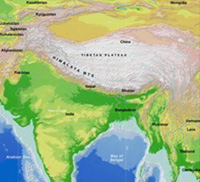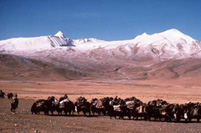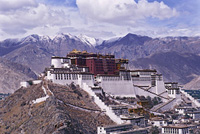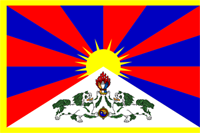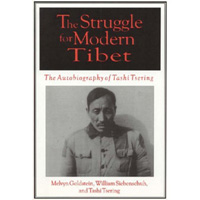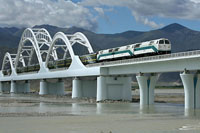
Jochen Welsch
Wachusett Regional High School
Tibet in the AP World History Framework
The first unit of the AP World History course focuses on the development of early human societies and the transition from pastoral and primary agricultural societies to complex sedentary kingdoms and empires. Click on the title Geography, Environment and Prehistory to access my powerpoint on Tibet formative history to the year 600 C.E.This powerpoint highlights the links between geography and human development in Tibet. Although the Tibetan plateau was not one of the core areas where early classical civilizations developed, the region's early history is instructive to preview/review the basic economic systems of early complex societies. It will also be good for the instructor to query students about why classical civilizations developed chiefly in river valleys and not elsewhere. Another useful theme for discussion is the symbiotic relationship between pastoral and sedentary societies.
Resources for further research and classroom extension activities:
Choose any early civilization (Mesopotamia, Nile, Indus River, Yellow River) and research its relationship to its nomadic neighbors. Describe the interaction between them. In what ways did each depend on each other? How would you explain why they came into conflict with each other? Give specific examples of their interactions and how they effected each group?
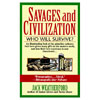 A good read for those interested in exploring the relationship between "savages" and civilization.The first chapter deals with Tibetan sky burial.
A good read for those interested in exploring the relationship between "savages" and civilization.The first chapter deals with Tibetan sky burial.
 This site was created by Jochen Welsch at the NEH Summer Institute "Literatures, Religions, and Arts of the Himalayan Region," held at the College of the Holy Cross, Summer 2008.
This site was created by Jochen Welsch at the NEH Summer Institute "Literatures, Religions, and Arts of the Himalayan Region," held at the College of the Holy Cross, Summer 2008.